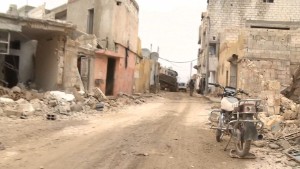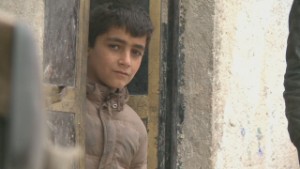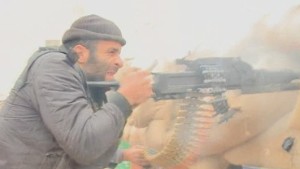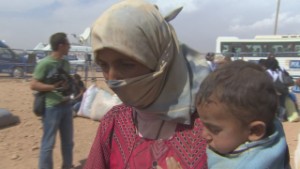- A top U.N. official says there are no words to accurately describe the Syrian conflict
- "We have run out of words" to explain the violence, Valerie Amos said
- Amos, the U.N. chief for humanitarian affairs, was addressing the Security Council
New York (CNN) -- A top United Nations official on Monday told the Security Council she has "run out of words" to describe the worsening situation in Syria.
"Every time we use a new figure in relation to the Syrian crisis, we say that it is unprecedented. We have run out of words to fully explain the brutality violence and callous disregard for human life which is a hallmark of this crisis," Valerie Amos, the U.N. chief for humanitarian affairs said.
Nearly 200,000 people have been killed in the 3-year Syrian conflict and one million injured, Amos said, describing a war zone with three combative parties fighting each other with no regard for the thousands of civilians and children caught in the middle.
The Syrian government has used barrel bombs in densely populated areas and "arbitrarily detained" citizens and subjected them to serious beatings and torture. Armed opposition groups have taken locals hostage and killed civilians by using explosive mortar and car bombs. ISIS has committed "mass victimization" of civilians, including murder, enslavement, rape, displacement and torture, Amos said.
 CNN crosses into ISIS wreckage
CNN crosses into ISIS wreckage  Kobani children shelter under pillows
Kobani children shelter under pillows  Fighting by the fallen in Kobani
Fighting by the fallen in Kobani All parties involved in the conflict "continue to violate the most basic of laws with devastating consequences," she said.
 Food aid suspended for Syrian refugees
Food aid suspended for Syrian refugees The under-secretary general described a particularly horrible situation for the country's children.
Reports of children being publicly executed, crucified, beheaded and stoned to death -- particularly by ISIS -- has increased in recent months. Other children, sometimes as young as 5 years old, are being trained at military camps, Amos said.
"This conflict is not only shattering Syria's present, it is also destroying its future," she added.
Locations traditionally identified as safe havens in conflict areas -- such as hospitals, schools and U.N. relief vehicles -- have not been exempt from attacks.
70 medical facilities across the country have been attacked over the last nine months, 60 by government forces, Amos said, citing statistics from Physicians for Human Rights. 150 medical personnel, including 97 in the line of duty, were killed over the same time period.
While opposition groups have blocked medical supplies from entering besieged cities, the government "continues to withdraw medicines, medical equipment and supplies, including for surgical intervention, such as antibiotics and injectable medicines from U.N. convoys," she said.
Besieged cities are largely in deadlock.
"No one allowed out; no aid allowed in. For years," Amos said before describing a new tactic in one besieged town: "Tiny amounts of aid allowed in, giving people hope, but so little it can only help a fraction of those in need. People's hopes raised and then dashed. Time and time again."
The U.N. has identified air bombs, car bombs or mortar attacks on or near schools at least 35 times since February, resulting in the death of at least 105 children, Amos said.
Amos urged the Security Council members to ensure all parties in Syria follow what they have outlined in resolutions: end indiscriminate use of weapons, protect children from violations, lift sieges on city and allow unhindered humanitarian assistance.
"Even in war, there are rules," she said.
No comments:
Post a Comment